We might be about to live through the worst Black Mirror episode yet.
In the wake of editing Wiley/Blackwell’s new book Black Mirror and Philosophy: Dark Reflections, this semester I taught a course at King’s College on the famous Netflix series Black Mirror. The course consisted primarily of having the students watch the episodes, discusses them, and then read and discuss chapters from the book devoted to those episodes. We talked about everything from criminal punishment, digital dating, and dealing with death to the abuse of social media, artificial intelligence, and the dangers of technology. Black Mirror is, top to bottom, an outstanding series.

But one episode stood out to me this semester; and it was the episode that, oddly enough, was originally panned as the worst by my students (and critics): Season 2, Episode 3: “The Waldo Moment.” It tells the story of a blue cartoon comedy bear (named Waldo) that decides to run for political office as a publicity stunt. His campaign gains traction and, although he doesn’t win, he ends up with enough support that, at the announcement ceremony when he offers “500 quid” for someone to throw a shoe at the winner, someone does and a riot starts. The show ends with Jamie, the original voice of Waldo who quit the campaign when he realized its danger, being beaten by gestapo-type police for throwing a brick at a screen displaying Waldo’s image.
One of my goals for the book, and the course, was to identify the question raised and/or the moral of each episode. For this episode, in the book, Greg Littman does an excellent job exploring the question raised by this episode: to what extent should disrespect and incivility play a role in political discourse; it’s one of my favorites in the book. But my conversation with my students about the episode made me want to probe deeper and try to figure out the moral message of the episode. It’s not easy to figure out. Indeed, it might actually have a couple.
Where’s Waldo’s Moral Message?
A first viewing might make one think that the episode is a criticism of how politicians are fake. When Waldo appears alongside the other candidates on a talk show, the only point he makes (among fart jokes and swearing) is that all the candidates are “fake.” “[You’re] less real than me, and I can do this” Waldo says, as he pulls of his cartoon head and juggles it around. “That’s what you said that really hit home,” his producer Jack later says. “[Waldo’s] not real, but he’s realer than all the others.” Indeed, Waldo himself seems to simply be a satire of how politicians operate. “All the other MPs have got teams, we’re just more honest about it.” What we see from politicians is a front, a persona, created by a team—focus group tested, researched, and polished. The only difference, one might argue, between them and Waldo is the fact Waldo’s fakery is obvious and up front.

But the message can’t be that simple. First, that’s a bit sophomoric. Of course politicians have a persona; we all put on personas and social masks in daily life. You behave different at work than you do at home. But second, the end of the episode has Jamie living in a world ruled by Waldo. You see him on every billboard, in classrooms, on military planes, and used as a mascot (with vague promises like “hope,” “change,” “future,” and “believe”). It’s not clear whether the world is united under Waldo, or whether different political parties in different nations have used Waldo to rise to power. But when the police taser and then beat Jamie up and just walk away (they don’t even arrest him), you get the impression that the world is universally fascist. Neither Waldo nor his message was a force for good.
The clue to the episode’s first moral message, I think, lies in the scene that explains how Waldo made this fascist world possible. Jamie and Jack (the producer who owns Waldo), meet with Jeff Carter, an American from “The Agency.” He explains why Waldo is the “perfect political figurehead.”
“The bear, people like. The fact he’s a bear is an assist….You look at human politicians, you’re instinctively like, “brrrr” – uncanny, right? Like the girls in porn. You know something’s wrong, cos why else are they doing it? It’s usually daddy issues, eh? Just like politics. Waldo bypasses that. You already know he’s not real, so no personal flaws….He’s a team, and you’re open about that, which is fantastic. The honesty thing works. Waldo is a construct people [don’t] just accept but embrace. At the moment he’s anti-politics, which is a political stance itself, right? But he could deliver any brand of political content, minus the potential downsides of a human messenger. In a debate, your team could Google every word the other guy says, then let Waldo hit him with debunk stats and spit a Twitter-ready zinger into the next sentence. He’s the perfect assassin….”
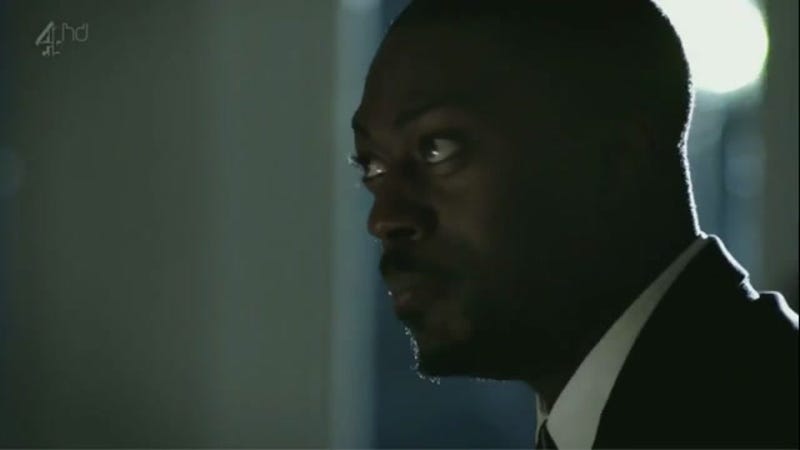
If we stopped there, one might think that the message of the episode is about the dangers of technology—a warning about the rise of digital animation technology, that could allow for a cartoon to run for office and participate in discussion and debate in real time (and be the best candidate on the stage because people can be googling the right response behind the scenes). And maybe that is a warning the episode calls out. But Brooker (the show’s creator) has said that (despite common opinion) the dangers of technology is not what Black Mirror is about.
“Occasionally it’s irritating when people miss the point of the show and think it’s more po-faced [humorless or dissaproving] than I think it is. Or when they characterize it as a show warning about the dangers of technology. That slightly confuses and annoys me, because it’s like saying [Alfred Hitchcock’s 1960 classic] Psycho is a move warning about the danger of silverware. Black Mirror is not really about that…“[I]t’s not a technological problem [we have], it’s a human one.”[1]
In other words, Black Mirror is about human foibles. The technology in the show just amplifies them so that they are obvious for all to see. And if we continue with Agent Jeff Carter’s quote, we can see the human foible that Waldo magnifies.
“…of course he won’t win. You started out too coarse off the bat. There’s no substantial basis to what you offer, and the whole nihilist “democracy sucks” thing, yeah, is kind of wack-a-doo. But with a targeted, hopeful message, which we can provide, energizing the disenfranchised without spooking the middle via your new platform, you got a global political-entertainment product people actually want. You could roll this out worldwide.”
That is what makes Waldo so dangerous. People like his anti-establishment-fuck-the-status-quo stance, but he doesn’t stand for any specific alternative. He has no plan. He has no position. He offers no fix. As Gwendolyn (his labor party opponent put it), “if you were preaching revolution, well that’d be something. But you’re not because that would require courage and a mindset. …what have you got? Who are you? What are you for?” A lot of people are, rightly, fed up with the system as it stands; they are the disenfranchised Jeff speaks of. They are anti-establishment. And so they like Waldo. But in what direction do you go after the establishment has been overturned? You could go anywhere, even straight into fascism. And since Waldo stands for nothing else, even fascists could use him to rise to power.

And so, at least as I now read the episode, its main moral message is this: a person with political mindset that only goes as deep as “fuck the establishment” is monumentally dangerous. That’s the human foible. Such a person could be manipulated into voting for any candidate; all a candidate has to do is declare themselves to be “anti-establishment.” And the same would be true of those who say, like Jamie, that they “aren’t interested” in politics. Not only does democracy require an informed electorate, and not only does low voter turnout usually hand an advantage to the worst candidates, but dissatisfaction with the status-quo is usually the reason such people give for their lack of disengagement. And even if they aren’t tricked into voting for the wrong person (because they don’t vote), such disengagement will lead them to be complicit when a fascist uses an anti-establishment platform to rise to power. They can’t be bothered to worry about the concentration camps, and the illegal behavior, and the lifting of environmental regulations—because ‘It’s boring” or because “all politicians are corrupt anyway, so what does it matter?”
Of course, the idea that all politicians are equally corrupt—that those who are opposed to fascism are just as corrupt as the fascists themselves—is a lie told by fascists to trick people into political complacency. The fallacy it invokes is called “false equivalence,” thinking two things are equivalent when they are not. Every political party has faults and scandals, but pointing out some of “their” mistakes doesn’t mean yours aren’t worse or more numerous. But not caring about politics is a privilege that can only last as long as one is not being affected by political decisions. Early in the episode, Jamie says he doesn’t care about politics; but I guarantee he cares at the end of the episode when he’s living in a fascist state and being tasered for throwing a brick at a screen with Waldo’s image. But by the time you are homeless on the streets, or the lead is in your water, or your schools are being deprived of funding or shot up by a gunman, or the members of your ethnic and religious group are being killed by police or rounded up, it’s too late.
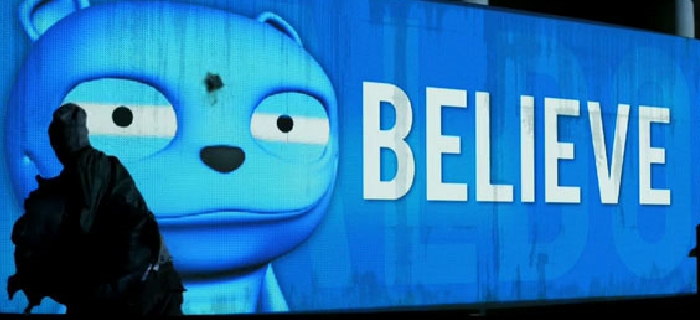
“What Are You For? “
When it comes to dangerous political disengagement, Brooker may have had a particular audience in mind. As Jack puts it:
“Waldo has got the attention of the young, and the young don’t give a shit about anything except trainers and pirating films….[but] they care about Waldo. They’ll vote for Waldo.“
Indeed, according to Roksolana Suchowerska, political disengagement is more common among young people than in any other age group.[2] Part of rectifying this might be an “increased flexibility in the practice of politics” that makes it easier for young people to be engaged; but the solution also has to come from young people themselves. One might think it’s hard to keep up with politics these days, but it’s actually never been easier. It’s all at your fingertips; it’s on your phone. One good half hour podcast once a week, for example, would be enough to at least keep current. Part of the reason King’s College requires its students to take philosophy is to make them into better persons; to give them the kind of mind worth making up, to make them valued contributing members of society with informed positions on important topics. But one can’t be that unless one is, at least to a minimum degree, politically informed and engaged.
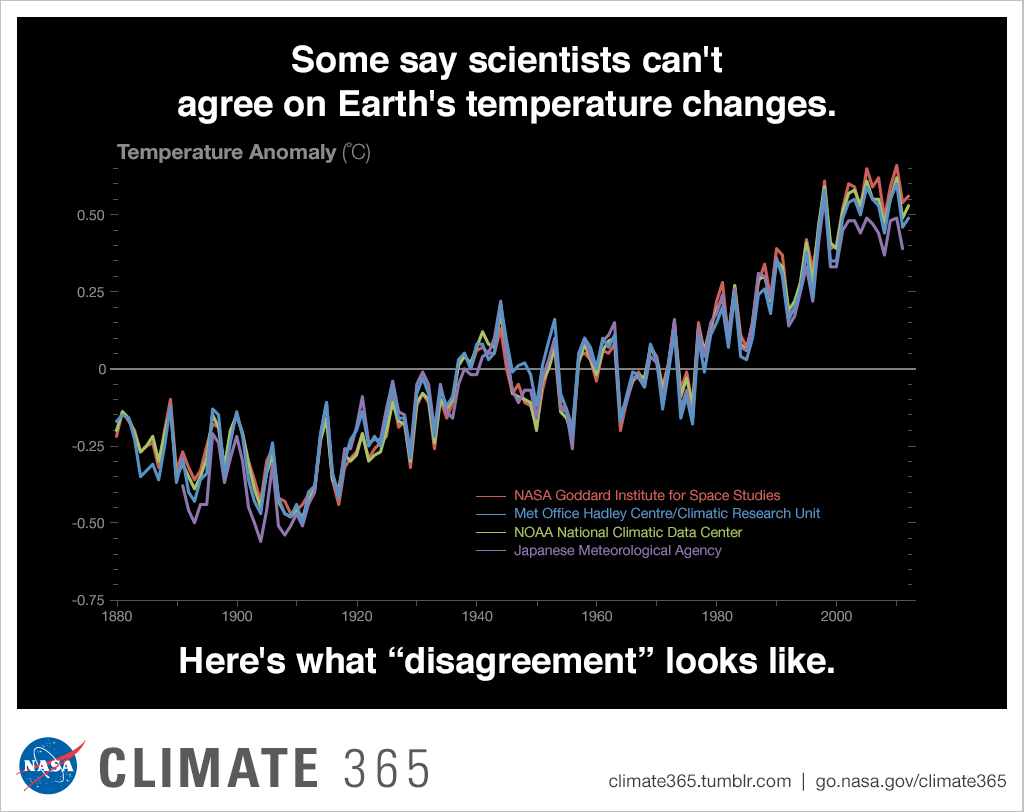
That’s not to say that there isn’t good reason for young people to feel disillusioned and disenfranchised. There is a lot of corruption in politics, and some politicians don’t behave well or have their best interests in mind. The world is literally burning and young people know that climate change poses a direct threat their continued existence. By the time they are adults, food shortages and extreme weather may make it impossible to not only live comfortably, but to live at all. Nevertheless, the leader of the political party in power now is pulling us out of the Paris Climate Agreement, moved to eliminate lower polluting cars because he says they are less safe (they aren’t), moved to repeal clean water standards because they hurt economic development (they don’t), moved to eliminate energy efficient lights bulbs because he says they make him look orange (that’s not why), and said there is nothing to worry about because climate change is a Chinese hoax. You can’t blame the youth for being frustrated.
The Dangers of Democracy
But this is not a reason to think all politicians are all that way. (That would commit a fallacy called “hasty generalization,” extrapolating to a whole population based on too small a sample size.) And it’s not a reason to think that politicians should be eliminated from the political process, or that it’s not worth figuring out which one is the best. Jamie actually hits on why in the above conversation with Jack.
Jack: Look we don’t need politicians, we’ve all got iPhones and computers, right? So any decision that has to be made, any policy, we just put it online. Let the people vote thumbs up, thumbs down, the majority wins. That’s a democracy. That’s a that’s an actual democracy.
Jamie: So is YouTube and I don’t know if you’ve seen it but the most popular video is a dog farting the theme tune to Happy Days.
Jacke: Well, today it’s Waldo.
Jamie: No. It’s still the dog.
Since democracy was first conceived, it’s been known that pure democracy—where everyone gets exactly one vote and everything is decided by the majority opinion of the entire populace—is dangerous. To borrow and modify a thought experiment from Plato’s Republic, if you owned a ship, how would you rather its navigation be directed? By a majority vote of the people who happen to be upon it? Or would you hire a navigational and sailing expert, who understands the science of sailing and navigation? Obviously the latter. This is why America’s founding fathers did not establish a pure democracy, but a representative democracy. They didn’t want a dictatorship; but they also recognized that the average person doesn’t have the relevant expertise to know which laws should be enacted or how governments should be run. The middle ground solution was to have the people, by majority vote, elect representatives who, at least ideally, would have the relevant expertise and know how to accomplish that which was the best for everyone.
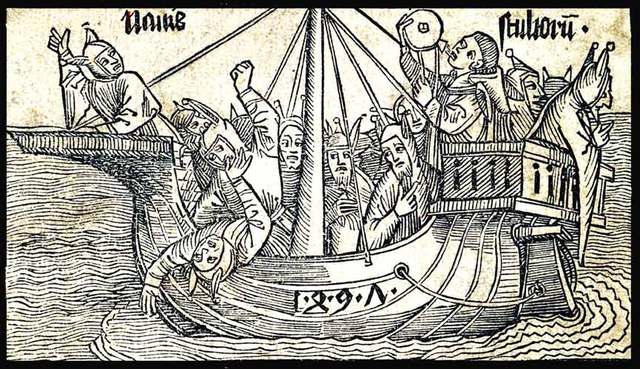
Of course, we don’t live in an ideal world; and there is nothing wrong with being unhappy with the current political leadership of either party. It’s not bad to be anti-establishment. There’s plenty wrong with things as they stand. But merely being anti-establishment isn’t’ enough. You need plans. You need a vision of how things should be changed, and a working argument for why those changes would be for the better. Tearing down the system is one thing, but not building another in its place would be even more disastrous than keeping the status quo. As Monroe, Waldo’s Tory party opponent puts it, “If [Waldo] is the main opposition then the whole system looks absurd. Which it may well be. But it built these roads.”
Are We Living In The Waldo Moment?
Just think of how different the world would be if the American public had been more wary of those who said they would “drain the swamp” and “make America great again” without being specific about what those phrases meant in practice. Notice that both are slogans that appeal to dissatisfaction with status quo. Those who are in office now are “swampy.” America is not great now. But notice also that they tell us nothing about what comes next. To what era of American history are we going to return? If you drain the swamp, who are you going to fill it back up with?
When politicians say such vague things, people will just assume that the politician is going to do what they want–to return America to the era they want, and install the people they like; but that leaves the politician free to do whatever they want, once they are elected. It’s a bit like the “secret plan” that Trump said he had to defeat ISIS in 2015 but that he couldn’t tell us about. “I don’t want the enemy to know what I’m doing [but] I have an absolute way of defeating ISIS….I know more about ISIS than the generals do. Believe me.” In reality, of course, he had no such plan; he just continued Obama’s plan; and when he finally deviated from it, his actions ended up helping ISIS.[3]
It turns out, however, the episode was not inspired by Trump. It aired in 2013 after all, two years before Trump announced his candidacy. “The Waldo Moment” was actually inspired by the election of Boris Johnson as Mayor of London in 2008. “It was that whole notion of cartoon Boris,” Brooker said. “He goes on some TV Panel show like Have I Got News for You and everyone think he’s a legend.” “And it doesn’t matter what Boris says,” Producer Annabel Jones adds, “as long as he’s entertaining. We’ll forgive you [for] anything if you make us laugh.”[4]

Indeed, even if Jamie did something wrong, Waldo would be blameless. People loved Waldo, not Jamie; Waldo is the one that makes them laugh. In the same way, Boris has created a cartoon version of himself—with disheveled hair and outrageous outfits—at which it’s almost impossible not to laugh. As a result, it’s almost impossible to make any criticism of Boris stick—even when he outright lies or disbands parliament. It’s almost like people separate the figurehead, or the politician, from the person. (This is why Johnson muffs his hair BEFORE interviews; he is getting into character.)
And the same, arguably, goes for Trump. This is why evangelicals like Trump the politician, despite the fact that Trump the person is a twice divorced philander who paid a porn star to keep secret their affair—the affair he had with her right after his current wife had his youngest son. And this is why no scandal, no matter how severe, ever sticks to him. Trump illegally funneled money from a charity, regionally intended to help kids with cancer, into the coffers of the Trump Organization. [5] The revelation of that fact would have forced any other president to resign. But not Trump. Why? Because, for his fans, the man behind the mask doesn’t matter.
The Dangers of Political Fandom
And that brings us to the second moral or “meaning” of the episode: It’s a warning against political fandom, and how it might lead to fascism. But what is political fandom?
At the end of “The Waldo Moment” Jamie finds himself living in a fascist dystopia. Apparently, by using Waldo and his anti-establishment message, fascists were able to rise to power. But ask yourself: when the fascists, using Waldo as a front, started doing fascist things – why didn’t anyone stand up and stop it? Why didn’t anyone object?
Now, one possible answer is that it was too little too late. People tried, but there was nothing they could do. Once in power, fascists tend to subvert the political and electoral process, either by using their existing political power to silence the opposition and rig elections, or by suspending elections and/or casting doubt on them so as to dismiss their results. When that happens, there is very little “standing up” one can do.

But the answer the episode seems to suggest is that people simply let him do it; they didn’t object because it was Waldo, and they were fans of Waldo. Think of how many people we see in the episode, wearing Waldo T-shirts, sporting stickers, or otherwise adulating him. They didn’t like Waldo because of his policies, or his ideas. They were just his fans. But they were willing to support and vote for him based on that alone. That is political fandom. And in the episode, it turned ugly pretty fast. Think of how quickly Waldo’s fans became willing to beat Jamie in the street, or start lobbing shoes at his opponents.
But how could fandom turn into a defense of fascism?
Consider the well-known backfire effect, which tells us that presenting facts and evidence to correct someone’s misinformed belief won’t get them to change their mind, but instead will cause them to embrace their false belief even more fervently. Now it turns out that this doesn’t always happen; if the issue is mundane—like about E. coli in romaine lettuce—then presenting the correct scientific information will usually change the misinformed person’s mind. But if the issue at hand is emotional, or if the misinformed person sees their false belief as a part of their identity, then you’ll get the backfire effect. Then evidence to the contrary will cause them to double down on their false belief.
Compare this to how most people today engage in politics. Rather than being concerned about platforms and policies, they are more concerned with seeing that their team wins. They will often wait to decide what they think on a topic until they find out what their political party thinks about it—or they will change what they think based on what their party’s platform is. Worse still, they will simply be fans of a particular political figure, and will even see their fandom of that political figure as part of their identity. (Compare “I am an X supporter” to “I support X.”) Consequently, they will be more likely to tie themselves in logical and/or moral knots to defend and/or embrace whatever that political figure says and does, no matter how horrendous or ludicrous it may be.

As a prime example of this, consider a short comedy piece recently done by Triumph the Insult Comic Dog (the real world’s closest analog to Waldo) in which he showed a collection of Trump supporters fake political ads where (a person they believed was) “Trump” made ridiculous statements and suggestions.
- We should electrify statues to kill protesters that try to topple them.
- We should solve the economic crisis caused by coronavirus by making children grocery store clerks, firefighters, and police officers.
- We should hold “playoff elections” that will extend Trump’s first term to 2024.
- We should test to see if we can cure coronavirus with microwaves by putting immigrants (“not people”) into giant person-sized microwaves.
In a similar segment, in 2016, Trump supports backed plans to deport Mexicans by locking them in porta-potties, and lowering the IQ of the Chinese by “injecting their water with various paints and solvents.”
In both cases, the supporters objected to very little; and when they did, they tied themselves into knots trying to make the suggestion seem as if it was not crazy. But none of these Trump supporters, even though they all believed Trump actually said these things, thought any of them were a convincing reason to not vote for him.
To be clear, this is not a phenomenon unique to Trump supporters or the Republican Party. When Stanford student Sam Cady first (as far as I can tell) used the term “political fandom” to refer to the phenomena in question, he not only used a Tea Party rally to illustrate the idea, but also the Democratic National Convention where Barack Obama was nominated. (Sam did so just a few months after “The Waldo Moment” aired in 2013; apparently, something was in the air.)
Obviously, “Berniebros” are fans of Bernie Sanders, and could likely be tricked by Triumph into defending some outlandish things that (they were led to believe) “Bernie” said. Like Waldo, political fandom can occur in any political party. But I don’t think one would be honest if one claimed that this phenomenon is equally common in both parties.
When Fandom Goes Really Wrong
Political fandom is bad enough; but when a political leader realizes that their base is behaving this way — that he could murder someone in broad daylight and not lose their support— and decides to encourage and exploit it, things can go really wrong. If the leader creates catastrophes and then claims he is the only one that can solve them – if he tells them reality is not as it actually appears to their own eyes – that everyone else is out to deceive them and only he tells the truth – if the fans declare that the political figure is a savior, and those on the other side are Satan-worshiping pedophiles — then we are beyond “political fandom,” and instead are dealing with a cult. And that’s even more dangerous.
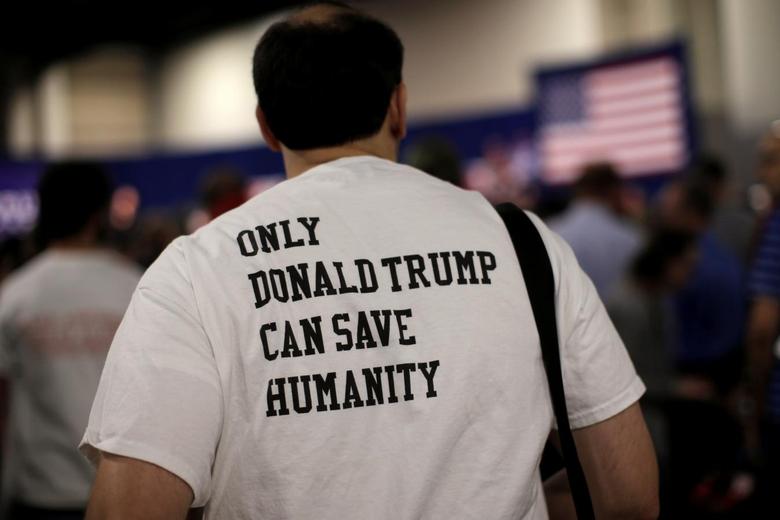
It’s not clear that “The Waldo Moment” suggests that those who used Waldo to rise to power ever took it that far; but the fact that they could have, I think, reinforces my conclusion that “The Waldo Moment” is the most important episode of the series.
God knows how the Waldo Moment would have been different had Brooker and Jones known that Trump would be elected president in 2016 or Boris would have spearheaded Brexit and then be elected as Prime Minister in 2019. In the wake of Trump’s election, protesters in the real world held up signs reading “This Episode of Black Mirror Sucks.” And earlier this year, a satirical advertisement for Black Mirror Season 6 appeared in Madrid, Spain; it was simply a (non-black) mirror with the words “6th Season. Live Now, everywhere” at the top.

Extremely clever. But a more accurate advert could have appeared on a bus stop in Washington D.C. and simply read “2020: The Waldo Moment has arrived.”
[1] Bryony Gordon, “Charlie Brooker on Black Mirror: ‘It’s not a technological problem we have, it’s a human one’.” The Telegraph, Dec 16, 2014. https://www.telegraph.co.uk/culture/tvandradio/11260768/Charlie-Brooker-Its-not-a-technological-problem-we-have-its-a-human-one.html
[2] https://www.jstor.org/stable/43496480?seq=1#page_scan_tab_contents
[3] In 2016, he admitted that his plan was to ask the generals for a plan. “I’m going to convene my top generals and give them a simple instruction…They will have 30 days to submit to the Oval Office a plan for soundly and quickly defeating ISIS. We have no choice.” In 2017, after being elected, he just continued to implement Obama’s plan, which he had previously said was “stupid” and “a total failure.” (source: https://www.vox.com/world/2017/7/3/15904646/trump-syria-assad-russia-iran-secret-generals-military-isis-terrorism) And then, of course, in 2019—completely in line with the wishes of Russia and Putin—he pulled troops of Syria; this not only literally handed American military bases over to Russia (with Russian flags flying over bases the U.S. built), but helped reinvigorate ISIS. (source: https://www.cnbc.com/2019/10/07/trump-handing-syria-to-turkey-is-gift-to-russia-iran-isis-mcgu.html)
[4] Charlie Booker and Annabel Jones with Jason Arnopp, Inside Black Mirror (New York: Crown Archetype, 2018): Chapter 6.
[6] That’s not to say Trump didn’t propose plans during the 2016 campaign. His website did have stated plans for the US-China trade war, for loosening gun regulations, clamping down on immigration, reforming the VA, and lowering taxes on the rich. But those were not the focus of his campaign. What’s more, the plans as stated were so vague that, at the time, the Committee for a Responsible Federal Budget was unable to estimate most of their economic impacts. The estimated cost of those they could (his plans for the VA and his tax cuts) were between 11 to 15 trillion over 10 years. (source: http://www.crfb.org/papers/adding-up-donald-trumps-campaign-proposals-so-far-archive) Of course, we know their cost now. Trumps trade war with China, for example, has decimated the agricultural industry (and forced Trump to do a bailout that was twice as expensive as the auto bailout (source: https://theweek.com/speedreads/866567/trumps-farmer-bailout-already-more-than-twice-expensive-obamas-automaker-bailout). Trumps loosening of gun regulations (source: https://everytown.org/press/the-facts-trump-administration-has-already-weakened-u-s-gun-laws/) have been followed by an even great number and more deadlier mass shootings than there were before. (Sources: https://www.latimes.com/opinion/story/2019-09-01/mass-shooting-data-odessa-midland-increase). Trump’s VA reforms have cost so much that they are going unfunded, despite the fact that he raised the VA budget to unprecedented degrees. (source: https://www.stripes.com/key-veterans-groups-blast-trump-s-va-budget-proposal-as-falling-short-of-veterans-needs-1.572485) And thanks to Trump’s tax cuts for the rich, despite promising to eliminate the debt during his campaign, the national debt has ballooned more under Trump than any other president in history. (source: http://www.crfb.org/papers/adding-up-donald-trumps-campaign-proposals-so-far-archive). This all highlights, even more, the need to stay politically informed.
One thought on “Black Mirror and the 2020 Election”